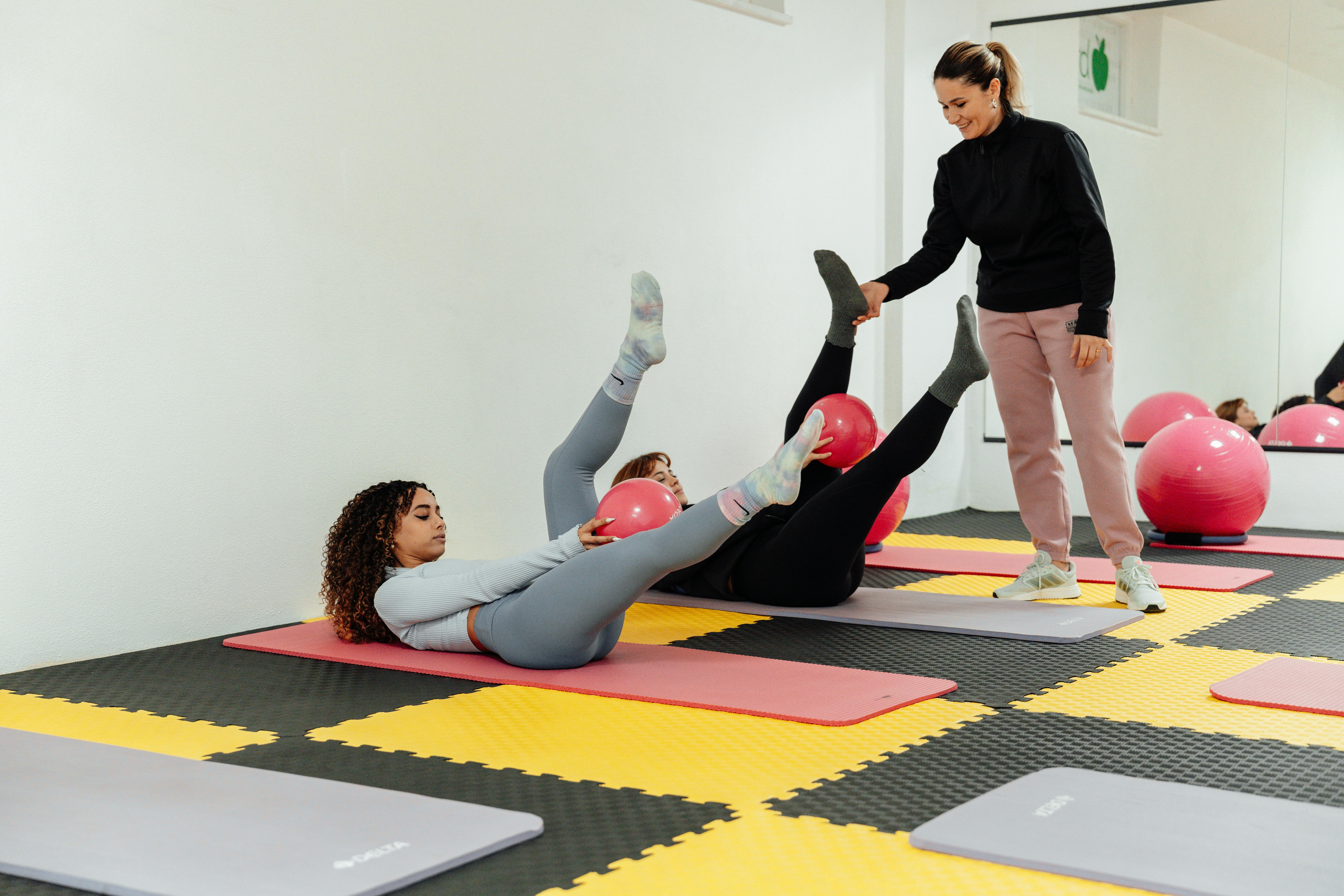
How to Start a Pilates Studio: The Essential Guide for Beginners
Thinking about starting a Pilates business and turning your passion into a studio? Great choice. Demand is healthy, and with the right plan you can launch a space that feels welcoming, runs smoothly, and earns repeat visits. This beginner’s guide walks you through each step, from nailing your niche to setting up your timetable and tech. Along the way, you’ll see where ClubWorx helps you cut admin and build a loyal member base.
Step 1: Define your Pilates studio vision and niche
Before you price a single class, get clear on what you want the studio to be.
Choose your focus
- Mat, reformer, or a blend with small apparatus
- General fitness, rehabilitation, pre and postnatal, or athletic performance
- Beginners only, intermediate blocks, or mixed level with progressions
Pin down your audience
- Busy professionals who need early and late sessions
- New mums with pram-friendly time slots
- Older adults who want strength, balance, and confidence
Craft your promise
In one sentence, state what you do best and for whom. This will guide your timetable, pricing, and marketing.
Tip: Keep a simple “positioning card” at the top of your business plan so the whole team can refer to it.
Step 2: Create a business plan and budget
Your plan does not need to be fancy. It does need numbers.
List your start-up costs
- Lease and bond, basic fit-out, mirrors, storage
- Reformers and props, cleaning equipment, reception set-up
- Website, branding, initial marketing, software
Estimate monthly operating costs
- Rent and utilities
- Instructor wages and super
- Insurance and accounting
- Software subscriptions and payment fees
Model your income
- Class packs, memberships, intro offers, private sessions
- Expected attendance per class and weekly capacity
- Break-even calculation and a conservative scenario
Track and adjust
Use reporting to watch cash flow, attendance, and member churn from day one. ClubWorx Sophisticated Business Insights gives you clear dashboards for revenue, bookings, and trends so you can react quickly.
Step 3: Secure your location and prepare your studio
Pick a space your audience can actually get to, then make it feel calm and professional.
What to look for
- Street visibility or strong local foot traffic
- Parking and public transport nearby
- Quiet neighbours and good sound control
- Enough floor area for reformers with safe spacing and instructor movement
Create the right feel
- Soft lighting and clean lines
- Storage that keeps the space clear between classes
- A simple welcome zone with check-in and water
Set the flow
Make it easy for members to arrive, store belongings, and start class on time. Small details reduce stress and help you run to the minute.
Step 4: Legal and administrative set-up
Get the paperwork sorted early so you can focus on people and classes.
Essentials
- Register your business and choose a structure
- Public liability and professional indemnity insurance
- Instructor agreements and clear policies
- Waivers and PAR-Q style health intake
Use a member system to capture digital forms at sign-up so nothing goes missing. ClubWorx Member Management stores profiles, waivers, notes, and tags in one place.
Step 5: Design your timetable and hire instructors
Your timetable is your product. Make it consistent, flexible, and easy to understand.
Build a simple, repeatable grid
- Anchor slots: two reliable morning times and two evening times on weekdays
- Mix of levels: Fundamentals, Open, and Strength or Stretch blocks
- Add a weekend pair that always runs
Hire and brief well
- Look for calm communicators with clear cueing and eyes on form
- Run a short teaching audition and ask for a sample sequence
- Share your studio promise, class templates, and safety rules
Keep team operations tidy with ClubWorx Flexible Team & Task Management to assign shifts, track tasks, and keep everyone on the same page.
Step 6: Choose the right studio management software
Good software reduces no-shows, takes care of billing, and keeps your data clean. This is where many new owners win or lose time.
What you need from day one
- Online booking and waitlists
- Member profiles and notes
- Packs, memberships, and promo codes
- Automated billing and dunning
- Email and SMS campaigns
- Clear reporting
How ClubWorx helps Pilates start-ups
- Pilates Studio Management Software: see the full toolset designed for studios, from bookings to billing to automations.
→ Explore the Pilates solution - Member Management: organise member data, waivers, and tags so instructors can personalise coaching.
→ Member Management - Simplified Payment Management: set up direct debits, handle failed payments automatically, and reduce awkward money chats.
→ Payments - Sales & Marketing Automations: send intro-offer follow-ups, milestone congrats, and win-back nudges without extra admin.
→ Automations - New Member App and Customer Mobile App: give clients a clean way to book, manage packs, and update details from their phone.
→ New Member App
→ Customer Mobile App
Sophisticated Business Insights: track revenue, attendance, and churn trends to make smarter decisions. → Business Insights
Step 7: Market your studio and launch successfully
You do not need a huge budget. You do need a consistent plan that matches your niche.
Lay the foundations
- A clear website with timetable, prices, and intro offer
- Google Business Profile with photos and up-to-date hours
- Social posts that show your space and instructors
Run a simple launch funnel
- Intro offer: for example, 4 classes in 14 days
- Automations: welcome email, booking reminder, day-7 check-in, day-13 upgrade nudge
- Conversion: membership or class pack with a first-month bonus
You can build the whole sequence with ClubWorx Sales & Marketing Automations and track outcomes in Business Insights.
A simple start-up budget outline (example)
- Reformers and small equipment
- Fit-out and signage
- Website and basic branding
- First two months rent and bond
- Insurance and accounting
- Software: bookings, payments, and automations via Pilates Studio Management Software
Start lean. Upgrade as classes fill and cash flow stabilises.
Onboarding that builds loyalty from day one
Set the tone with a clear, friendly onboarding flow.
Map the first two weeks
- Welcome email with how to prepare for class
- Intro video on posture basics and equipment set-up
- A quick check-in after the first session
- A progress tip before class three
Members can manage everything in the New Member App and Customer Mobile App so your team spends less time on admin and more time coaching.
FAQs: quick answers for new owners
How much does it cost to start a Pilates studio?
Budgets vary by location and equipment. Plan for fit-out, reformers, software, insurance, and a runway for the first three months. Track costs closely in Business Insights.
What membership model works best for beginners?
A time-boxed intro offer followed by a simple membership and one class-pack option keeps buying choices clear. Manage it in Member Management with Simplified Payment Management.
How do I reduce no-shows?
Use reminders and easy self-serve swaps in the mobile apps. Set them up via Sales & Marketing Automations and nudge members through the Customer Mobile App.
Do I need software from day one?
Yes. It stops manual errors, keeps data in one place, and saves hours each week. Start with Pilates Studio Management Software.
Start smart and keep it simple
You can open a strong Pilates studio with a clear niche, a tidy timetable, and tools that keep admin light. Focus on the member journey, keep your offer simple, and automate the routine tasks so you can coach well and build community. When you are ready, explore the full stack for Pilates in ClubWorx Pilates Studio Management Software and launch with confidence.






.png)






